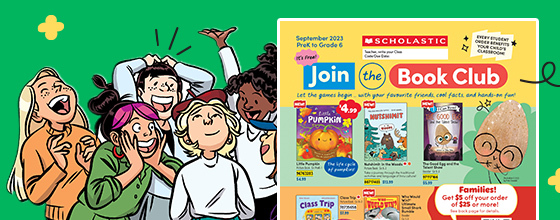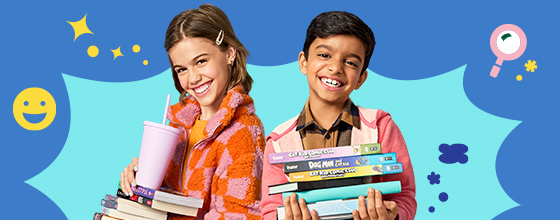One week, your kids are spending all day at the pool (and running through the house dripping wet). Next, they’re sitting politely in class soaking up knowledge about dinosaurs, volcanoes, and the solar system.
As the freewheeling fun of summer vacation gives way to the rigour and structure (and excitement!) of the back-to-school season, there are ways you can ease your kids’ transition back to the classroom so they’re ready for a successful year.
Here are four strategies for helping your kids get back into the swing of learning.
One of the most important things you can do leading up to school is to look for ways to integrate learning into everyday activities.
“Even when you’re doing activities that are fun, you can throw in things that will engage kids in some amount of learning,” says Novea McIntosh, an assistant professor of teacher education at the University of Dayton, Ohio. “Make it informal and fun, and unbeknownst to them, they’ll actually be learning.”
Take for instance, Klutz Craft Kits. They may appear to be all fun, but they’re actually mini-lessons in discovering and refining STEAM (science, technology, engineering, art and math) skills with joy. Creative activities are not only fun for kids, but helps build out-of-the-box thinking.
Any activity that is playful but requires new skills will help ease your child back into the learning that’ll be expected of them in school.
Introducing children to new board games before school starts is another effective way to prime them for absorbing new knowledge.
“In order to build kids’ confidence, especially younger children, we want them to feel like they’re understanding things and that they’re part of something bigger,” says McIntosh.
When introducing a new game to your children, don’t just read the instructions out loud. Instead, model how the game should be played, how to develop a strategy for winning, and how to learn from mistakes — then let them take the lead.
“This will help them with problem solving and critical thinking skills in a collaborative way, which is a good representation of classroom teaching strategies,” says McIntosh.
The Social Skills Board Games will help develop and teach new social skills and behaviours simply by playing, laughing and having fun with friends. Children can play and learn about how to be a good friend, how to understand and manage strong emotions, and more social emotional skills that will help them both in and out of the classroom setting.
In the lead-up to school, McIntosh also suggests parents engage their children in books and materials that reflect the world around them. Make sure your child’s home library is stocked with a diverse range of characters, settings, and topics that give readers mirrors and windows into the experiences of themselves and others.
“Remind them that students come to their classrooms with differences,” says McIntosh. “And I’m not only talking racial differences — think about autism, ADHD, and other learning disabilities.”
Building empathy and understanding with your kids before school starts is a great way to help them understand one another’s differences and why it’s important to celebrate those differences, and to ensure they return to the classroom ready to learn with acceptance and respect.
Be a Bridge describes different ways in which readers can “be a bridge,” from welcoming a new student and listening respectfully when someone else is talking, to standing up to a bully and comforting a classmate who is upset.
Before the school year kicks off, help your child develop resilience by encouraging their own “productive struggles” — those that build problem-solving skills — and to develop their confidence and persistence in the face of challenges.
“If their feelings are hurt, help them think through what’s going on and how they can feel better,” McIntosh says.
Books are a powerful tool in boosting self-esteem and helping kids open up while reading. Share stories about feelings to help your child explore their emotions, navigate change, and head back to school with confidence.
All the Things You Will Do combines aspiration, fun and heartwarming moments to show children that they can be everything they hope to be and more.
Shop Scholastic Book Clubs for more great books and activities to kick-start the school year!
Originally published by Scholastic Parents on August 2, 2024. Versioned for Scholastic Canada.
 Book Clubs
Book Clubs
Scholastic Book Clubs helps kids discover the joy of reading. Together, we put can’t-miss books into kids’ hands—at can’t-miss prices, while also giving back to a teacher's classroom!
Visit us online Book Fairs
Book Fairs
Bookjoy or bust! Millions of children have discovered books—and a lifelong love of reading—at a Scholastic Book Fair.
Visit our site